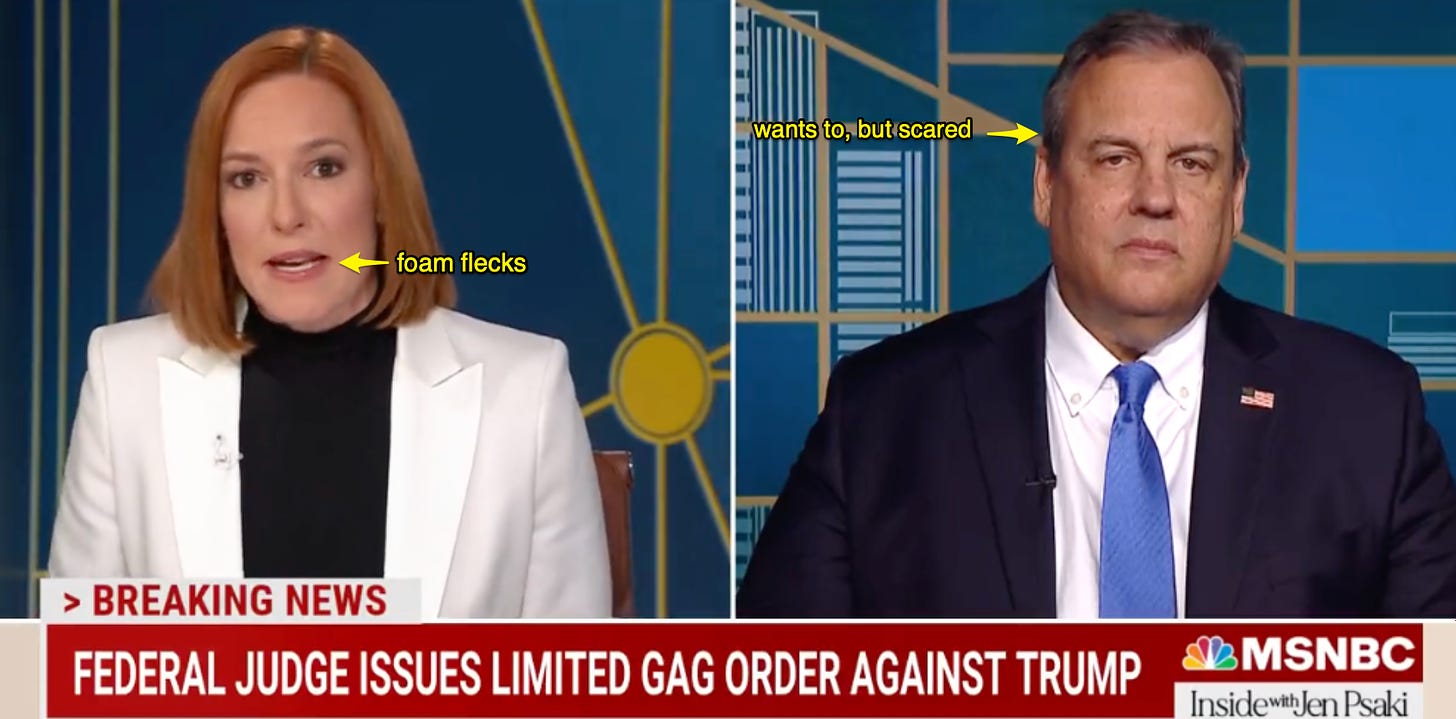
Yesterday the Times ran a related story headlined, “
Trump Seeks Dismissal of Federal Election Case, Claiming Immunity.” The sub-headline explained “Donald Trump’s lawyers asked a judge to throw out charges that he conspired to overturn the 2020 election, arguing that a president could not be criminally prosecuted for official acts.”

Yesterday, Trump’s lawyers filed a 52-page motion seeking to dismiss the D.C. “insurrection” case — a federal indictment accusing Trump of conspiring to “subvert” the 2020 election — because the charges relate to official actions he took as president, and therefore, under long-established law, Trump should be "absolutely immune from prosecution."
If they are right — and I think they are — it would also justify dismissal of the Georgia case against Trump as well.
The Times correctly pointed out that the doctrine that a president cannot be prosecuted for actions undertaken in his official capacity as commander in chief has never been tested. “Here, 234 years of unbroken historical practice — from 1789 until 2023 — provide compelling evidence that the power to indict a former president for his official acts does not exist,” Trump’s lawyers wrote in their motion. “No prosecutor, whether state, local, or federal, has this authority; and none has sought to exercise it until now.”
The short version is that courts and government agencies have always held that the proper recourse against a President for official presidential acts is
impeachment, not prosecution. This is not putting a President “above the law,” it is preventing a vast ocean of politically-motivated nuisance prosecutions that would dog every single president and make it impossible for him to do the job.
Decades ago in
Nixon v. Fitzgerald, the Supreme Court ruled that a president has absolute immunity from
civil liability for any acts within the ‘outer perimeter’ of his official responsibilities. This well-established immunity doctrine has never been tested in a criminal case, because no president has ever been subjected to the relentless prosecution now facing President Trump. Yesterday’s motion persuasively argued that the
Fitzgerald case’s reasoning about civil cases should equally apply to criminal cases.
The Constitution’s text indirectly supports the same conclusion. Article I’s Impeachment Clause provides that, although the impeachment proceedings don’t carry any criminal punishment (other than removal from office), a fully-impeached president "shall nevertheless be liable and subject to Indictment, Trial, Judgment and Punishment, according to Law.” By providing that a president who is impeached and convicted in the Senate may subsequently be criminally indicted, the Constitution obviously implies that a president cannot be criminally prosecuted for his official acts absent initial impeachment and conviction.
It’s a great strategy. The predictable denial of this motion to dismiss by Trump’s trial judge will probably be immediately appealable. So it could go right to the unfriendly D.C. Circuit Court of Appeals and from there, to the U.S. Supreme Court, which would almost certainly take up the case. And a favorable ruling from the Supremes would resolve Trump’s Georgia case as well.
Well played, team Trump.
Neo-globalist Hotez comes for us all; Biden restarts Border Wall; FBI chases Trump supporters; reporter says Biden's brain is mush; sepsis epidemic; Trump for Jordan; Trump cases update; and more.

www.coffeeandcovid.com







